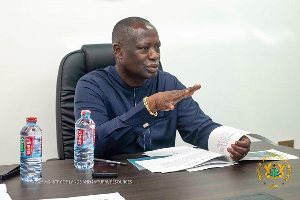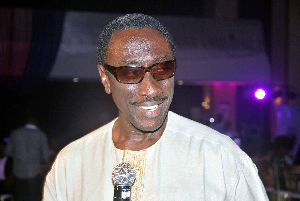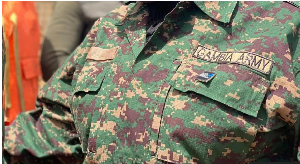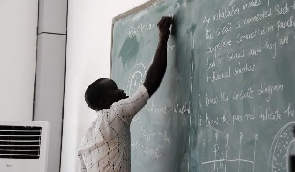Soon after the Supreme Court (SC) confirmed the declaration of John Mahama as elected President of Ghana on August 29, 2013, calls came from various quarters for electoral reforms to avoid a repetition of the 2012 presidential and possibly parliament elections. However, some people, especially, members of the main opposition party, NPP are of the view that the Electoral Commission (EC) should not lead the reforms. The latest to add his voice to the subject of electoral reforms is NPP MP for Manhyia South, Dr Matthew Opuku Prempeh who called on the EC to confess that “the 2012 general elections fraught with errors prior to any plans for electoral reforms to ensure peace in 2016” (see, “EC must confess before 2016 or... Napo”, Ghanaweb, October 18, 2013). This article is a contribution to the debate on the requirement/s for effective electoral reforms, if Ghana is to avoid the shortcomings of the 2012 in 2016.
From what transpired at the presidential election petition hearing at the SC, particularly, the inaccurate recording of information on pink sheets by electoral officials, there is no doubt that Ghana’s election administration, management and organisation need urgent reforms. Indeed, some of the nine SC Justices made specific recommendations for reforms in their written judgements. For these reasons, I wholeheartedly support the call by Dr Opoku Prempeh for nothing but the whole truth about what really happened during the 2012 general elections to be known as the starting point for reforms.
Without the whole truth, any reforms based what we saw and heard at the SC would be based on disputed evidence that still remained unresolved as the SC Justices themselves were divided on the evidential value on information contained on the pink sheets. Moreover, the pink sheets exhibited at the hearing were only those from some parts of the country and stronghold of the ruling party, NDC. For the reforms to be effective and a learning exercise for the EC as well as the political parties, it is critical that Ghanaians get to know what really happened in all other constituencies across the country where pink sheets were not exhibited at the hearing.
For the above reason/s and before any reform work is undertaken, I strongly recommend that, the EC should set up a group to analyse the totality of 26,000 pink sheets from all polling stations in the 2012 elections. The main objective of the group is to analyse the information recorded on the pink sheet but not to determine from the information who won the election/s. That matter has been settled by the SC as far as the presidential election is concerned. Moreover, there are still ongoing parliamentary petitions at the courts and there is no point in reopening a can of worms. After all, when the US Supreme Court ruled in favour George Bush in 2000 and it subsequently transpired that Al Gore actually won both the Electoral College votes as well as the popular vote, the decision was not reversed. The 2012 presidential election is done and dusted and nothing useful could be gained except division by any attempt to find something contrary to EC’s declaration that has been confirmed by the SC after eight months of hearings. Ghana must move on.
The group should comprise of representatives of the EC, political parties, civil society organizations, academics and other key stakeholders. Their task is simply to analyse the quality of information recorded on each of the pinks sheets from the 26,000 polling stations. Including the parliamentary elections, the total will be 52,000 pink sheets. Their evaluation should form the basis for reform of the pink sheet and other electoral materials such as ballot papers. It would also guide the selection and training of future election officials, including party agents. In fact, the group should have the option of inviting a sample of the elections officials, particularly those who made serious “errors” in recording election information on the pink sheets.
As at now, Ghanaians know only half of the pink sheets story and the other half, especially, those in the opposition party’s (NPP) stronghold should also be told. Such an undertaking would also enable the EC to know whether the “mistakes and incompetence” of the temporary staff they engaged during the 2012 elections as presiding officers were country wide or restricted to certain parts of the country. In other words, were these “errors” deliberate and systemic? That should also guide the EC to set some minimum criteria (education qualifications, verbal and written communication skills) for future selection of electoral and polling station officers.
The work of this group should be properly managed and controlled so that it does not become a retrial of the presidential petition. To avoid rumour mill about the work of the group and the propaganda skills of General Mosquito and Sir John being put into operation, the public should be informed about progress of the group’s work through regular press statements.
But for time and cost, I would have recommended that this work should be extended to the 2008 elections to assess whether the mistakes and errors are a common feature of Ghana’s elections and not only limited to the 2012 elections. However, due to the urgency of this work and the cost of extending the work to 2008, especially within the current state of public finance and the fact it was the 2012 presidential election that revealed this problem, it is reasonable for the exercise to be restricted. I am sure academics, researchers and students may one day want to undertake such an exercise in the future if electoral laws in Ghana allow them access to past electoral materials.
This exercise cannot be undertaken successfully without the leading role and active participation of the EC. That is why I find it difficult if not absurd that some people are suggesting that EC should not lead the reforms. Theories of Change Management suggest that change is more effective and successful if initiated from within and led by change agents from within. Change from outside is often difficult to direct and manage its direction and could get out of control. It is right that EC does not control the reforms but certainly leading it does not necessarily mean control.
The EC must confess what happened during the 2012 general elections as the starting point for electoral reforms. However, if that confession is based on only half of the story, then I am not for it. On the other hand, if it is a confession of nothing but the whole truth, then I am all for it because how can the past guide us into the future if that past is only half? Dr Opoku Prempeh, let’s have the EC’s whole confession for posterity.
Opinions of Sunday, 17 November 2013
Columnist: Ata, Kofi


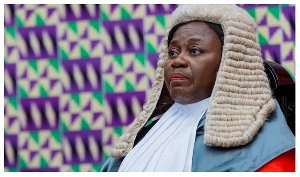

![Declan Rice shouting at Partey [L] Declan Rice shouting at Partey [L]](https://cdn.ghanaweb.com/imagelib/pics/372/37287055.295.jpg)

